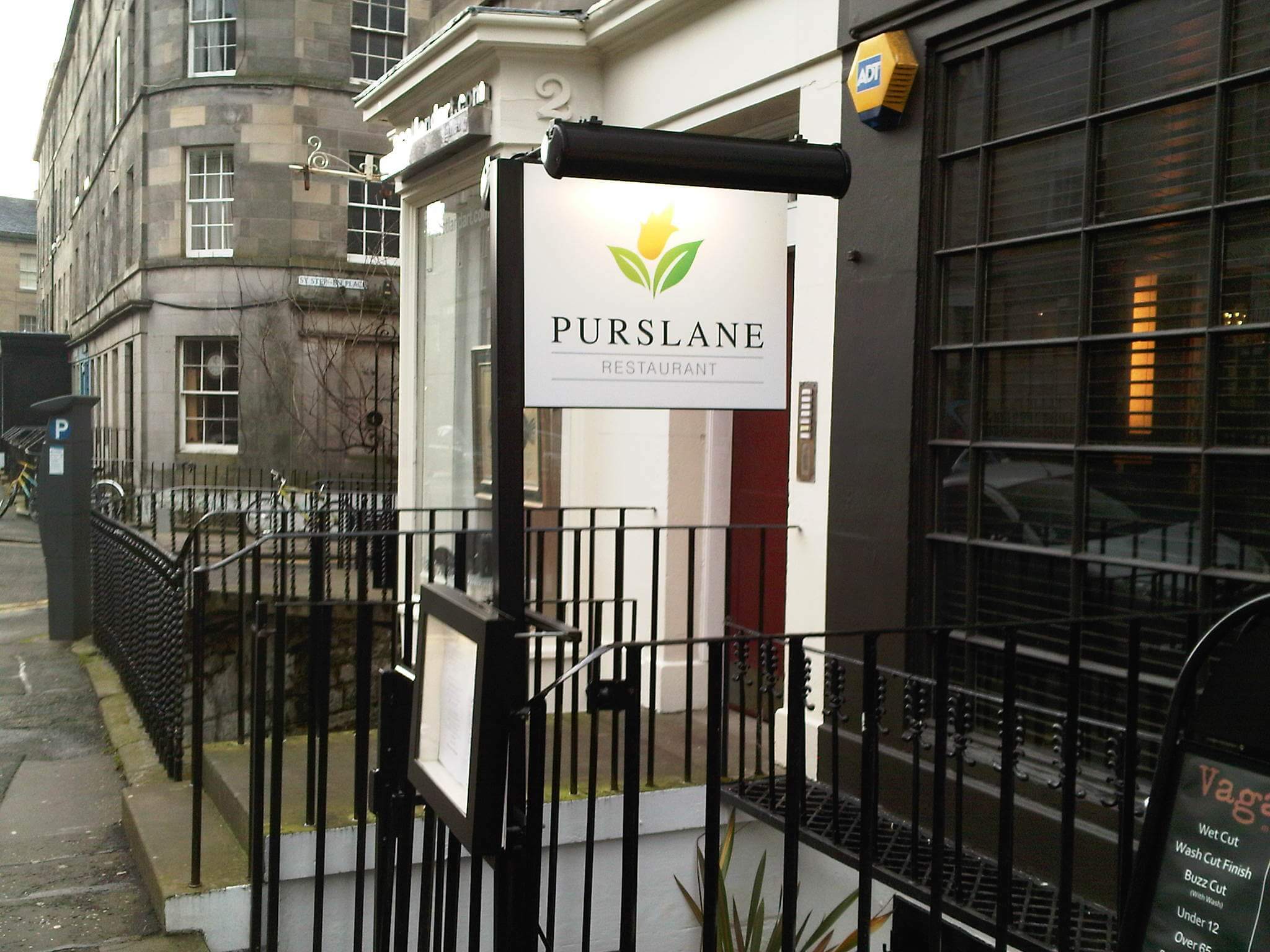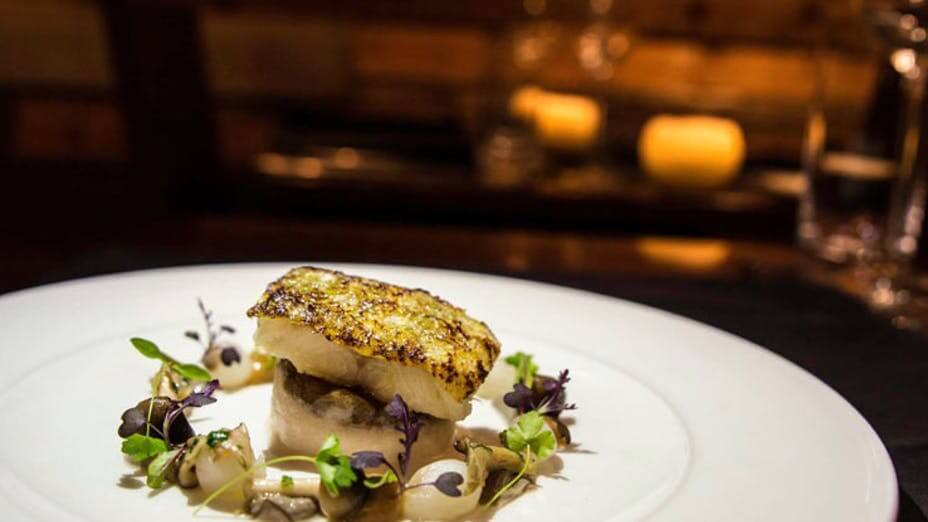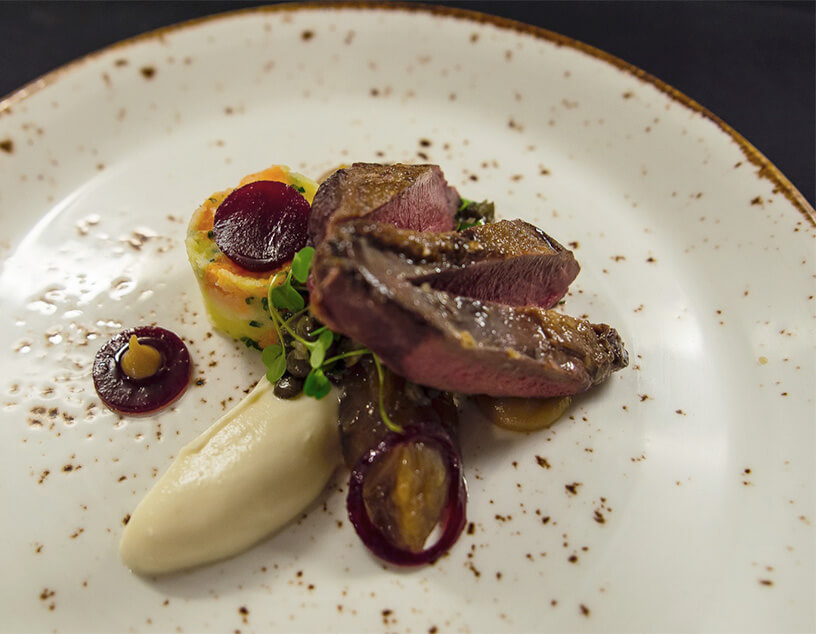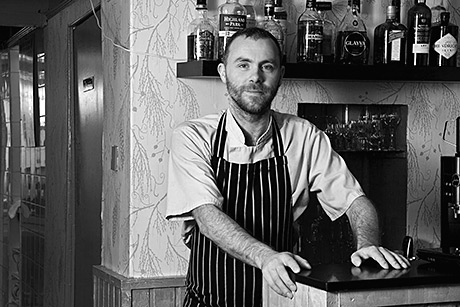Episode 127 - Paul Gunning on his shoebox success
Posted by Emily on 7th Jun 2022 Reading Time:
He’s worked in five star hotels, 2-3 rosette and Michelin starred restaurants and, 11 years ago, he opened Purslane in Edinburgh. If you’ve not yet had a chance to listen to our podcast with Paul where he talks about so many issues from tackling Covid to chasing Michelin stars, here’s a snapshot of the conversation.

Given the option of working in Tokyo or staying put and opening his own restaurant, chef Paul Gunning chose the latter and he hasn’t looked back since launching Purslane.
A small, 16-cover casual fine dining restaurant serving fresh, local produce, the focus is very much on good food, good drink and good hospitality but without the “pomp and ceremony”. And if you want a table here on a Saturday night, you’ll have to book at least two months in advance, it’s that popular.
Whilst before Covid Paul would have described the small, intimate nature of the restaurant as somewhat of a “curse”, now he sees it as a blessing.
“In the beginning…we’d get a lot of people coming down and saying is that it? It’s a shoebox,” he says.
“When we hit Covid, obviously I’ve got the shoebox so our overheads weren’t as big as what they would be if I was a 100-seater restaurant and had all these staff so it was a lot easier to manage because of the size.”

As well as reducing the number of covers slightly, Paul also dropped the a la cart menu in favour of his five and seven-course taster menus, explaining: “I didn’t have as much to spend on food costs, I could be a lot more stringent on food prep and focus on seven dishes rather than 15.”
Doing so he feels customers now get a better experience.
With such an intimate restaurant comes a modest-sized team which, at times, brings its own challenges. Paul explains how he once worked a full restaurant with just one KP serving up a seven-course taster menu.
“Worst case scenario, if I need to do that myself I’m able to do that, I don’t want to do that and I didn’t enjoy it, but it’s nice to know I can still do it.”
Paul is a restaurateur who genuinely cares about the well-being of the team. He’s keen to encourage a work-life balance – staff all do 40 hour weeks – he’s built consistency into the business with trade staying at 16 covers whether it’s a Wednesday or a Friday night, and he leads by example.
“If the KP is on holiday or off sick, I’ll jump on and do the dishes. I’ll jump on and do sauce, larder, pastry, I’ll sweep the floors, I’ll polish cutlery. The only thing I don’t do is polish glasses because my hands are too big I smash too many! I help with emails, admin, I help my restaurant manager if he’s looking for new suppliers, I’m always there.”

As a result, Paul’s team has come to care about the restaurant as much as he does. “They all think how can we make this better? How can we take it to that next step for the customers?”
The standard is clearly high at Purslane and although it’s yet to gain a Michelin star, Paul doesn’t feel it takes anything away from the experience, adding: “We strive to meet Michelin standards but we’re not striving to get a Michelin star. If a star came along, we’d be like great but we’re not chasing it as such.”
He recounts an experience he had in his early days when he received a call from a reporter after Purslane made it into the Waitrose Good Food Guide, thinking it was something that was handed out at the checkout at Waitrose.
“I went and Googled it and I was like, ok, that was a bigger deal than what I gave to the reporter. At the time we were the 110th restaurant in Scotland to be in the Waitrose Good Food Guide. To put that in to context, in Edinburgh alone there are 2,500 places to eat so it was a big deal. Unfortunately, I didn’t realise it was such a big deal at the time!”
Since Paul opened the doors to Purslane, he’s witnessed the restaurant scene in the UK explode and he cites many great chefs playing a part: Sat Bains and Clare Smyth– the first British female chef to win three Michelin stars – as well as younger chefs such as Tommy Banks and Roberta Hall-McCarron.
This, he says, is evident in Edinburgh too with diners are equally spoilt for choice. However, Paul believes you don’t have to go to a two or three-star restaurant for a great meal.
“There is an amazing bar called Pakora Bar just serving pakora. There are all these small independent restaurants that are giving great service, great food at a really good price.”
Moving from chef to a restaurateur brought new challenges and responsibilities to Paul’s door, which pushed him out of the comfort of the kitchen and into the world of business. This has included tackling no-shows as well as responding to negative feedback on review sites like Tripadvisor, which he’s reluctant to do in writing online, preferring to have a conversation with the person.

“The reason we don’t do a written comment back is that when you read that horrible review you got all these emotions, it’s almost like a personal attack so if you get straight on the keyboard and write a review and you look at it the next day you think, ah, I probably shouldn’t have written that. We acknowledge them in-house…the last thing I want is for people to be unhappy.”
On the flip side, he appreciates their value as a marketing tool, adding: “We want good reviews. People do look at them.”
Working in hospitality for most of his life, Paul has rubbed shoulders with some highly respected chefs, each one leaving a small imprint on Paul, from his first head chef at the Balmoral Hotel, Jeff Bland, to Marco Pierre White and Gordon Ramsay. He says of the latter: “You look at what he’s done, you look at his career, he worked in a lot of good, hard restaurants to get where he was.

“The success he’s got and the standards he’s got, he doesn’t let that drop and I’ve got a lot of respect for him.”
He holds equal admiration for chefs Phil Thompson at Auberge Du Lac, a British fine-dining restaurant in Herefordshire, and Jean Michel Gauffre who runs French bistro La Garrigue in Edinburgh. He says: “Phil Thompson, his drive his work ethic. He was always thinking about the kitchen and always pushing us to our limits. He was always thinking what we can do that’s different, how can we push each other, inspire each other.”
While of Jean Michel’s rustic cooking style he says: “He taught me it doesn’t always need to be this pristine plate of food to have flavour, you can still have a rustic plate of food to have flavour.”

